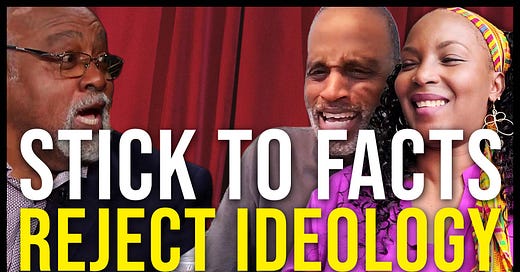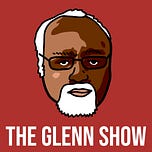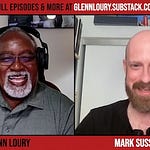My guests this week, Charles Love and Donique Rolle, turn down the temperature on the sometimes overheated debate about race and education. Charles is a passionate advocate for the power of education to help young black people achieve a successful and productive life—as he says, it’s no coincidence that most African Americans with college degrees are doing pretty well. Donique teaches African American history at a Florida public high school, and she’s found not only that she can do so quite effectively without recourse to critical race theory, but that she rarely gets pushback from parents and students about her approach.
Both Charles and Donique seem to agree: Racism (“systemic” or otherwise) is not a major obstacle to black students’ success; teaching them that it is only encourages them to disregard their own abilities and agency. I ask them about larger political issues at play in debates about teaching black history. Is Florida’s Stop WOKE Act as repressive as its opponents make it sound? What is the relationship, if any, between LGBT history and black history? Are traditional public schools the best way to educate our young people? Donique’s answer may surprise you.
This post was released on Monday to paying subscribers and is now unlocked. To receive early access to TGS episodes, an ad-free podcast feed, Q&As, and other exclusive content and benefits, click below.
Featured Content from the Manhattan Institute
Mark Calabria, senior advisor at the Cato Institute, joins MI's Judge Glock for a new episode of Manhattan Insights, which takes up how a mortgage meltdown was avoided during the pandemic.
0:00 Charles’s argument for emphasizing education over systemic racism
5:21 Donique: Teaching African American history doesn’t require critical race theory
15:36 Charles: We are the 97%!
18:48 How Donique balances oppression and triumph in black history
24:02 What does Florida’s Stop WOKE Act actually say?
33:30 What’s wrong with integrating LGBT history and black history?
44:19 Sexuality’s ever-shifting Overton window
49:40 Why Donique, a public school teacher, advocates for homeschooling
54:30 Expanding the canon of historic black figures
Recorded April 10, 2023
Links and Readings
Charles’s podcast, Cut the Bull
Seeking Educational Excellence
The Woodson Center’s 1776 Unites project
Ian Rowe’s book, Agency: The Four Point Plan (F.R.E.E.) for ALL Children to Overcome the Victimhood Narrative and Discover Their Pathway to Power














Share this post